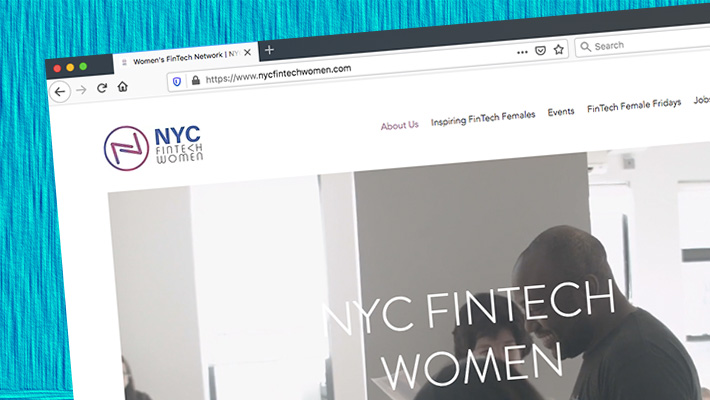How NYC Fintech Women is Keeping its Community Going in a Pandemic
 How does a community of people continue to support each other and network in a pandemic? What is lost when in-person meet ups are replaced by stop-start Zoom conversations? Do geographical limits even exist anymore when everyone is bound to their homes? These are the questions that NYC Fintech Women are dealing with now.
How does a community of people continue to support each other and network in a pandemic? What is lost when in-person meet ups are replaced by stop-start Zoom conversations? Do geographical limits even exist anymore when everyone is bound to their homes? These are the questions that NYC Fintech Women are dealing with now.
Founded in 2017, NYC Fintech Women is an organization of roughly 5,000 members that aims to provide its members with the opportunity to build a web of connections that might otherwise be out of reach. Open to both men and women, the group revolved around regular gatherings that afforded the chance to rub shoulders with both those entrenched in fintech as well as figures from institutional finance. Ranging from mid-tier employees all the way up to executives, the organization encompasses a broad section of those working in the intersection of finance and technology.
Born out of the frustration that Founder Michelle Tran felt when trying to locate fintech people at New York events which largely catered to institutional and traditional finance, the plan for the organization was two-pronged: get all these fintech types together for easier communication while also creating an environment that will allow women to “build their own board.”
Described by Tran as part of Fintech Women’s ethos, the idea is that you’ll have to build your own team if you’re going to get anywhere. “You really need to build your own personal board in order for any type of career advancement,” Tran explained over a call. “So making sure you’re pulling in the right leaders, the right support systems that are also diverse, and the best way to do that is to have a strong network of people at your fingertips.”
And it’s this ethos as well as the social aspects of community that have been challenged by the pandemic. But determined not to let covid-19 get the best of what the organization has become in the past three years, the group has been forced to adapt.
Like the rest of us, telecommunication is being brought in to replace what once came naturally. Slack will offer the chance to chat as a large group, smaller coffee chats will replace the opportunities to talk amongst peers, and a mentoring program launched in January is in the process of being turned fully virtual. And as well as these developments, the decision to expand beyond New York, a move that’s been on Tran’s mind for a while, is now looking more likely as events go online, removing the barriers that come with location.
“It’s a bit harder to just meet somebody, but we’re going to facilitate a number of different platforms in order to do that,” Tran said. “That’s one of the things that we continue to say is really important, and I think that’s what a lot of people miss too, as we’re all sitting alone in our home or with our families. We missed that engagement that we have with others, so we’re finding ways to do that.”
Last modified: May 23, 2020Brendan Garrett was a Reporter at deBanked.































